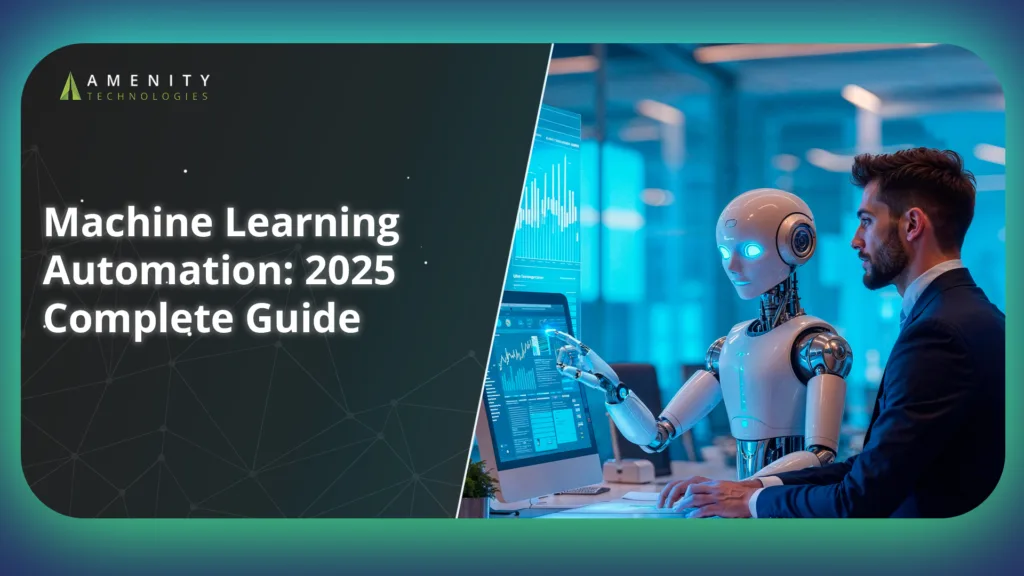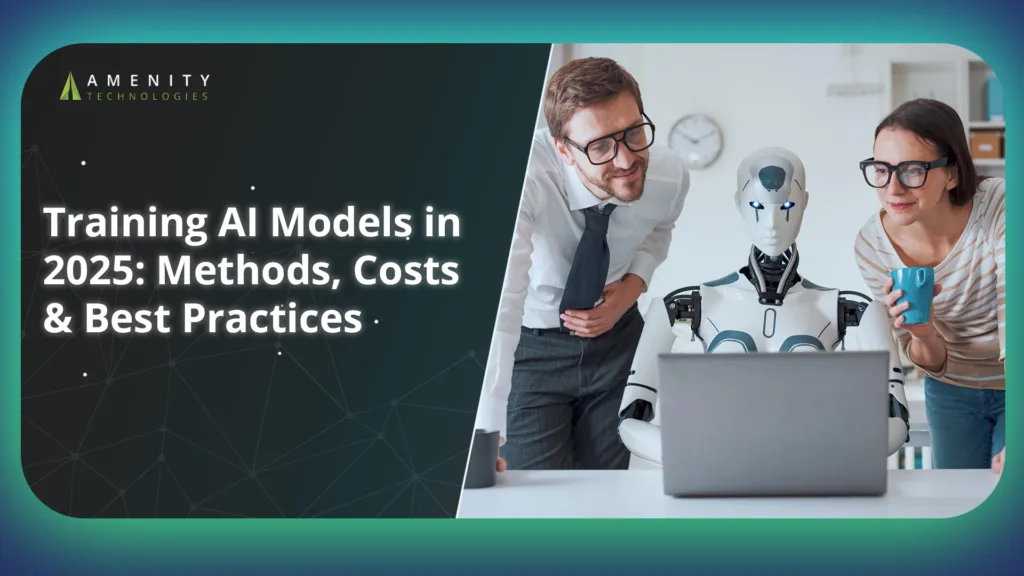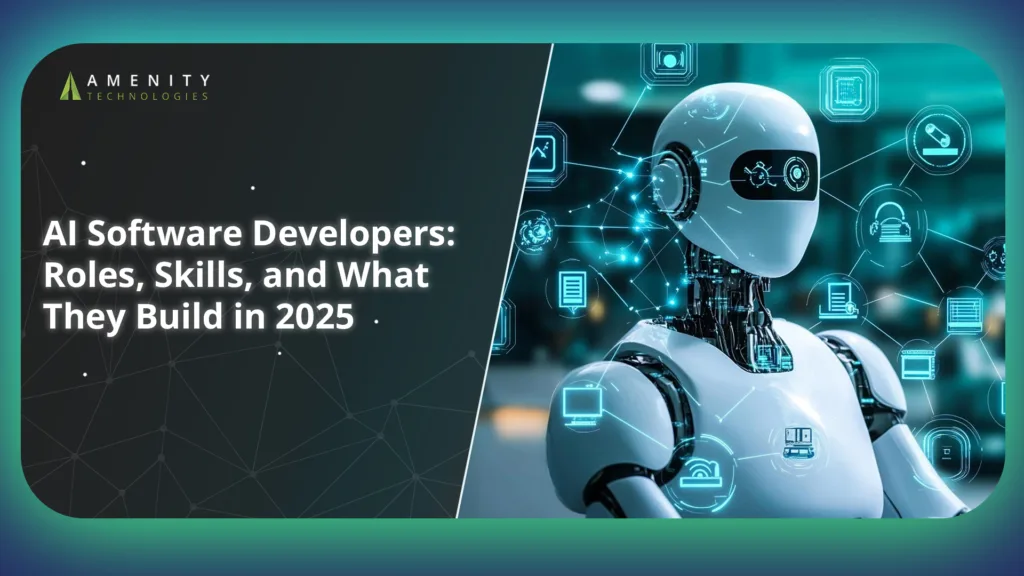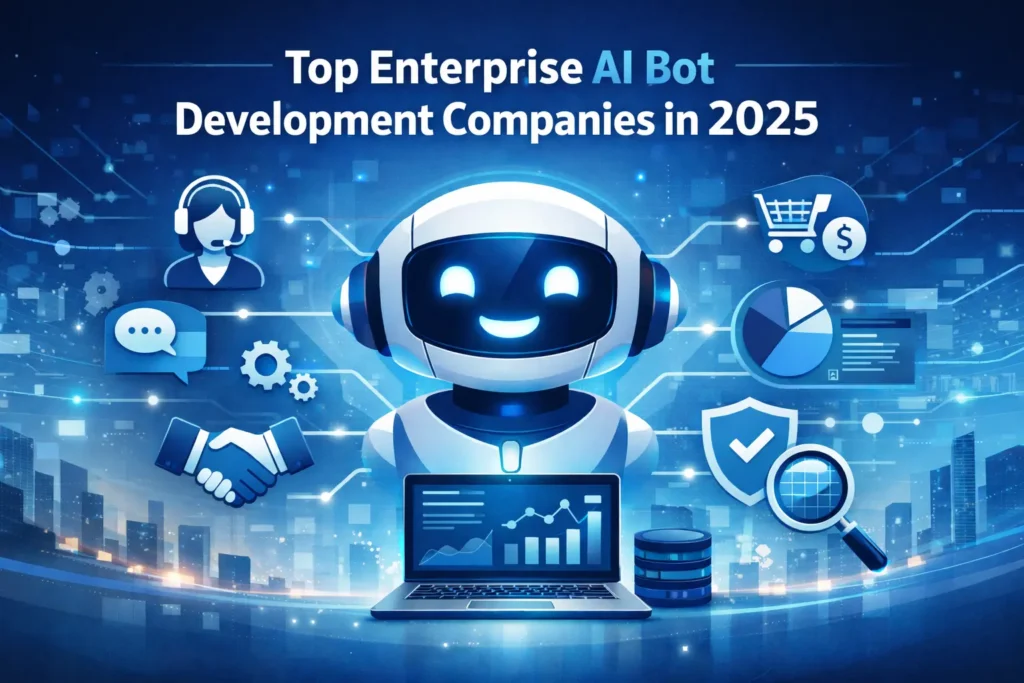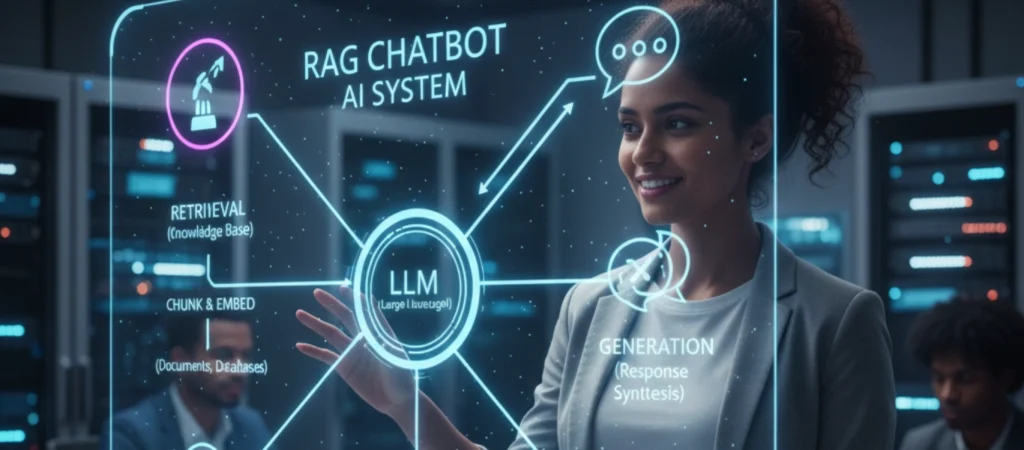AI adoption has surged at record speed. McKinsey’s 2024 survey shows 78% of businesses already use AI in at least one area, compared with just 55% the year before. Generative AI alone now reaches 71 percent of organizations worldwide. But how many are seeing measurable returns, and how many are still experimenting?
The gap usually comes down to the partner they choose. A capable AI development company doesn’t just build models; it helps translate data into real business outcomes. With hundreds of vendors in the market, the decision gets harder each year.
This article filters the noise, explains what sets apart a strong AI software engineering company, and highlights the traits of a top AI solutions provider that can help you succeed in 2025.
Why Choosing the Right AI Development Company Matters in 2025
The market for AI services has grown aggressively. IDC projects global spending on AI to hit $632 billion by 2028, fueled by enterprise demand for automation, predictive analytics, and generative applications.
Yet a large share of AI pilots never scale. According to Gartner, 30% of Gen AI projects will be abandoned after proof of concept by the end of 2025. This means many firms invest heavily but fail to realize long-term value. The partner you choose determines whether AI stays a cost center or becomes a competitive driver.
AI is Not Just Code; It’s Strategy
A strong AI development company looks at business goals before writing a single line of code. It ensures AI connects with measurable outcomes like customer acquisition, retention, or efficiency gains. Without strategy, AI remains a technical exercise that rarely influences the bottom line.
Pitfalls of Working with Generic Software Vendors
Generic vendors often present AI as another software module. They may lack ML engineers, data scientists, or infrastructure specialists. As a result, integration challenges surface later, and models fail to perform in real environments. This wastes both budget and executive confidence.
Working with a focused AI software engineering company or a top AI solutions provider helps avoid these problems.
Features That Define the Best AI Development Companies
Not every vendor offering AI services can deliver enterprise-grade outcomes. The best providers combine technical depth with domain understanding and operational maturity. When evaluating options, focus on the following features that consistently separate a capable AI development company from others in the market.
1. Track Record of Real-World Use Cases
Proof of success matters. Look for vendors that have deployed AI in live settings and can show measurable improvements. Recent studies show only 17% of enterprises have production-level agentic AI in almost all workflows and functions, out of all of those who are experimenting. Companies that can present case studies with clear adoption metrics stand out.
2. In-House AI Talent (ML Engineers, LLM Architects, etc.)
Top firms invest in specialized teams. Having ML engineers, LLM architects, and infrastructure experts in-house ensures projects don’t stall due to skill shortages. Relying on outsourced expertise often leads to slower development and weaker integration. So, that’s why, choose a development firm that already has a built in-house AI talent team.
3. Platform Flexibility – Modular, End-to-End, or API-Based
Flexibility is non-negotiable. The best AI software engineering company supports multiple deployment models, from modular components to API-first integrations. This enables businesses to start small and expand without replacing entire systems.
4. Vertical Fit – Finance, Retail, Healthcare, and More
Domain knowledge accelerates adoption. A top AI solutions provider that understands compliance in finance or patient data privacy in healthcare is far more effective than a generalist. Vertical expertise shortens time to value and reduces risk.
5. Support and Post-Deployment Maintenance
Deployment is only the beginning. A qualified partner includes monitoring, bias detection, and security updates as part of ongoing support. Without structured maintenance, models degrade quickly and lose relevance.
Top Profiles – Who’s Leading the Pack in 2025?
The AI market now includes highly specialized providers, each focusing on different layers of the stack. Instead of looking for one-size-fits-all solutions, businesses should evaluate which type of AI development company matches their needs. Below are the categories shaping the field in 2025.
1. Enterprise NLP Builders
These firms specialize in natural language processing at scale. They create advanced chatbots, voice assistants, and document intelligence platforms. Modern enterprise NLP goes beyond text, with multimodal tools that combine speech, image, and video inputs to improve accuracy and user engagement.
2. AI Venture Studios
Unlike traditional vendors, these studios incubate multiple AI-driven products under one roof. They rapidly prototype, test, and refine AI applications, moving them from proof of concept to production. Their strength lies in accelerating innovation cycles while keeping deployment aligned with business outcomes.
3. Scalable GenAI Infrastructure Providers
Some providers focus on infrastructure that supports generative AI at enterprise scale. They deliver modular platforms for agentic AI pipelines, retrieval-augmented generation (RAG), and governance controls. These companies enable organizations to adopt AI safely while ensuring compliance and long-term scalability.
Evaluation Guide: How to Choose Your AI Development Partner?
Selecting the right AI development company requires more than reviewing marketing claims. A structured evaluation process helps separate vendors who can deliver lasting results from those who only provide prototypes. Use the following checkpoints before making a decision.
Step 1. Define Business Goals and Internal Readiness
Clarify what success looks like. Do you need automation to cut costs, analytics to improve decisions, or generative tools to boost customer interaction? Assess your internal data maturity and change management readiness before engaging a ai software engineering company.
Step 2. Check Technical Breadth and Depth
A qualified partner offers a complete AI stack. Look for expertise in model training, API design, infrastructure deployment, and governance. Depth in areas like generative AI, multimodal systems, and retrieval-augmented generation shows they can handle advanced use cases.
Step 3. Prioritize Long-Term Scalability and Integration
The best vendors design systems that grow with your business. Cloud-native architectures and modular platforms allow incremental expansion instead of expensive rebuilds. This flexibility ensures AI continues to perform as business demands evolve.
If you are wondering, here are some questions that you can ask to analyze whether the service provider is a perfect fit for long-term scalability:
| Question | Answer that you should look for |
| How do you design AI systems to scale over time? | Look for responses mentioning modular architecture, cloud-native deployment, and API-first design. Avoid vendors who only describe monolithic builds or short-term prototypes. |
| What is your approach to handling data growth? | A suitable AI development company should explain how they manage data pipelines, storage, and performance optimization as datasets expand. Watch for references to distributed systems, data versioning, and governance. |
| How do you ensure integration with existing enterprise systems? | The right partner should describe seamless integration with ERP, CRM, or analytics platforms through APIs or middleware. If integration is treated as an afterthought, scalability will suffer. |
| How do you manage post-deployment updates and monitoring? | Strong vendors highlight continuous monitoring, bias detection, and security patching. They should also reference structured AI operations practices, not ad hoc maintenance. |
| What is your roadmap for supporting emerging AI technologies? | Providers should explain how they adapt to generative AI, multimodal systems, or retrieval-augmented generation. A long-term partner anticipates market changes rather than reacting late. |
Step 4. Scrutinize Case Studies and Client References
Review client success stories carefully. Ask how quickly proof-of-concepts moved into production and what measurable benefits followed. Reliable vendors can provide client references that demonstrate ROI, adoption rates, and post-launch performance.
Why Amenity Technologies Is the AI Development Company You’ve Been Searching For
Amenity Technologies positions itself as more than a service vendor. By combining deep technical expertise with a consultative approach, the company delivers measurable AI outcomes for both startups and large enterprises. Here’s what defines its approach.
1. Built for Both Startups and Enterprises
Amenity uses modular architecture that allows quick proof-of-concepts and smooth scaling into enterprise-grade deployments. This flexibility helps startups test ideas quickly while giving larger organizations a structured path from pilot to production.
2. Full-Stack Capabilities in AI, ML, NLP, and GenAI
The company employs ML engineers, LLM specialists, and AI operations teams in-house. This mix ensures every project benefits from cross-disciplinary expertise rather than generic development resources.
3. Consultative Engagement with Long-Term Vision
Amenity works closely with clients from discovery through deployment and optimization. The consultative model ensures AI solutions align with strategic objectives and deliver value beyond the first release.
4. Transparent Pricing. Proven Results.
Amenity emphasizes clear pricing structures and rapid delivery. With 95 percent of projects going live in under five weeks, the company has built a reputation for speed and reliability without sacrificing quality.
Conclusion
Selecting an AI development company in 2025 is a decision that defines how effectively your organization uses AI for measurable results. Vendors differ widely in expertise, scalability, and support.
The strongest partners combine technical depth, domain knowledge, and a structured delivery model. By applying the evaluation criteria outlined in this guide, you reduce risk and avoid wasted investment.
Work with an AI software engineering company or top AI solutions provider, like Amenity Tech that aligns strategy with execution. Intelligent outcomes come from intelligent choices, and the right partner ensures AI delivers lasting value.
FAQs
Q1. What does an AI development company typically offer?
An AI development company provides model design, training, validation, and deployment. Services often include building APIs, integrating AI into enterprise systems, and maintaining models after launch to ensure consistent performance.
Q2. How is an AI software engineering company different from a dev agency?
An AI software engineering company builds predictive, generative, or decision-driven systems. Traditional dev agencies usually deliver CRUD applications or static tools, while AI-focused teams design adaptive models that improve through ongoing learning and optimization.
Q3. How long does it take to launch a working AI prototype?
A functional proof-of-concept can be delivered in 6 – 8 weeks. For complex enterprise solutions with advanced integrations, the timeline can extend to 3 – 6 months depending on data readiness and project scope.
Q4. How do I budget for AI development?
Entry projects typically start around $10K. Enterprise solutions requiring large datasets, custom modeling, and infrastructure support can exceed $100K. Costs vary based on scope, complexity, and the involvement of in-house versus external engineering teams.
Q5. Do I need in-house AI engineers if I work with a development company?
Not always. Many top AI solutions providers offer full ongoing support. However, maintaining some internal expertise ensures long-term control and smoother adoption as AI usage expands across business functions.
Q6. What red flags should I watch for when selecting a vendor?
Watch for missing case studies, vague proposals, off-the-shelf products with little customization, and limited post-launch support. A qualified AI development company should provide detailed examples of past success and clear post-deployment maintenance plans.






